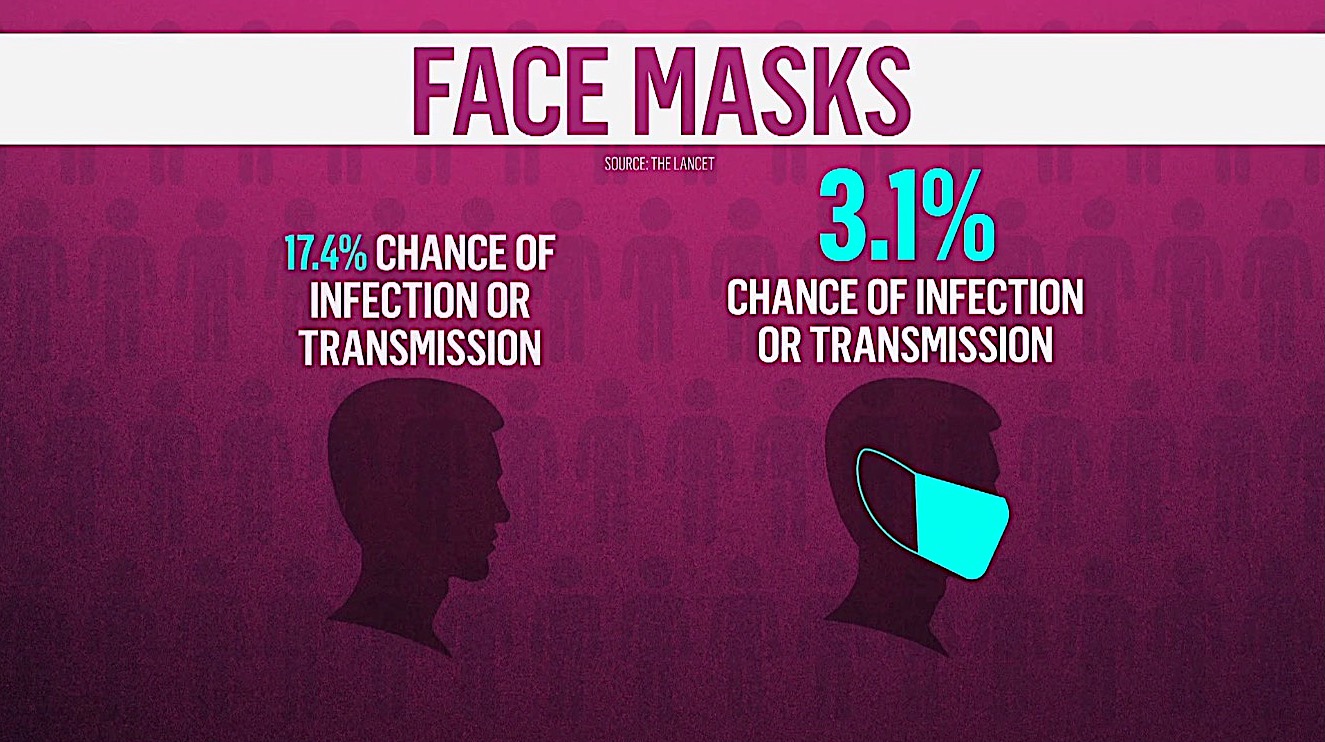Large global study affirms face masks reduce COVID-19 infection risk by 85 percent


A free daily email with the biggest news stories of the day – and the best features from TheWeek.com
You are now subscribed
Your newsletter sign-up was successful
A review of 172 studies on coronavirus transmission from 16 countries confirmed that wearing a face mask and maintaining physical distance significantly reduced the risk of spreading COVID-19. The first-of-its-kind study, funded by the World Health Organization and published Monday in the journal The Lancet, also attempted to quantify how much each measure cut transmission risks by itself.
The risk of transmitting the new coronavirus without a mask or respirator is 17.4 percent, but with a mask that falls to 3.1 percent, the study found, though the researchers noted there's a higher amount of uncertainty on mask wearing than physical distancing. Keeping a distance of less than 1 meter (3.3 feet) and no other protective measure carried a transmission risk of 12.8 percent, cut to 2.6 percent when the distance was more than 1 meter and even lower at 2 meters (6.6. feet). There was also a sharp cut in risk with eye protection.

"In all three questions, the evidence appears to support the measures," Oxford University's Trish Greenhalgh, who wasn't involved in the study, tells CNN. "For example, on average, staying 1 meter away from other people appears to reduce your chance of catching COVID-19 by 80 percent. Wearing a mask or face covering appears to reduce your risk by up to 85 percent. And wearing goggles or a face shield seems to reduce it by up to 78 percent."
The Week
Escape your echo chamber. Get the facts behind the news, plus analysis from multiple perspectives.

Sign up for The Week's Free Newsletters
From our morning news briefing to a weekly Good News Newsletter, get the best of The Week delivered directly to your inbox.
From our morning news briefing to a weekly Good News Newsletter, get the best of The Week delivered directly to your inbox.
Still, the main takeaway is that "no single intervention on its own made an individual completely impervious to transmission," Dr. Derek Chu at Canada's McMaster University, who co-authored the study, told NBC Today. All three together seriously cuts the odds, and "we can't neglect basic measures such as hand hygiene."
A free daily email with the biggest news stories of the day – and the best features from TheWeek.com
Peter has worked as a news and culture writer and editor at The Week since the site's launch in 2008. He covers politics, world affairs, religion and cultural currents. His journalism career began as a copy editor at a financial newswire and has included editorial positions at The New York Times Magazine, Facts on File, and Oregon State University.
